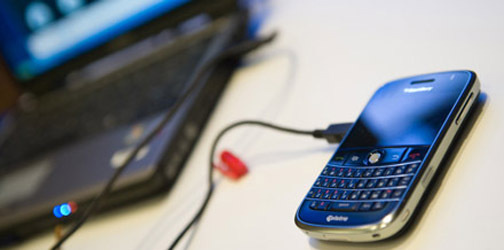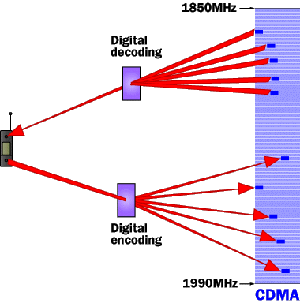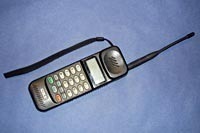A smartphone is a mobile phone with a considerably greater amount of functionality than an ordinary mobile phone or a feature phone. Smartphones can be considered a blend between a mobile phone and a full featured mobile computer, similar to the PDAs (Personal Digital Assistants) of the past, but even more capable.
They typically include a complete operating system, the ability to add or remove applications at will, significant amount of data storage, mobile and Wi-Fi internet connectivity, a multitouch capable touch screen, GPS navigation, and of course, standard mobile phone functions such as making phone calls and texting.
Smartphones vs. Feature Phones vs. Basic Mobile Phones
The difference between smartphones and feature phones is somewhat vague because feature phones also include some features usually ascribed to smartphones. They reside somewhere in the middle between smartphones and simple mobile phones. We can therefore classify them like this:
- Smartphones: all or almost all of the features of a mobile computing device that are possible at the time.
- Feature phones: some of the features included, others left out to reduce cost and appeal to those who don’t need all of the smartphone features.
- Basic mobile phones: primarily meant to just enable phone calls, texting, MMS and other features considered basic for any mobile phone.
Popular examples of smartphones include Apple’s iPhone, Samsung’s Galaxy S series, Motorola Droids, Nokia Lumia, and so on. Popular mobile operating systems running on smartphones include Apple’s iOS, Google’s Android, Microsoft’s Windows Phone, RIM’s Blackberry OS, and Nokia’s Symbian OS (although their Lumia series runs on Windows Phone).
Uses of a Smartphone
What really makes smartphones useful are all the applications (or “apps”) it can run, and the ability for the user to choose at will which to run. This flexibility combined with the sheer amount of functionality available from these apps is what makes smartphones appealing.
Smartphones will then be most useful to those who need a full featured mobile computing device that you can count on for almost any mobile computing need you might have. If you are sure you only need a few specific features then perhaps a feature phone with only those select features might be a better, and cheaper, choice.
Features provided by smartphone apps are truly many. The following is just a cross section of what a smartphone can be used for: managing email, browsing the web, listening to music, watching movies, recording movies, taking and managing photos, instant messaging, social networking, taking notes, scanning documents, and even some exotic functionalities such as measuring your heart rate.
Security Risks
Being essentially full featured mobile computers, and increasingly always connected to the internet, smartphones can also be susceptible to malware such as viruses and spyware. One of the ways an infection might occur is by installing a bad app from the app store. Unofficial third-party app stores carry a greater risk in this respect.
Anti-Virus and anti-malware apps are, however, available, and could ensure greater security of your smartphone when kept running and up to date.




Follow Us!